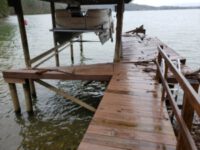What is the Job Description of a Plumber
A plumber’s specialty is the installation of drainage and potable water systems. In addition, he will work with sewage systems. The plumber installs water heaters and gas appliances. As a result, he has many different skills. A plumber also has a high demand for services and may be needed at any time of the year.
If you are looking to hire a plumber, you should have a job description that is optimized for search performance and candidate conversion. Use a sample plumber job description as a guideline and adjust it to your specific job duties and company requirements. It is also a good idea to check out current job listings to get an idea of how to structure your own.
A plumber’s job description should clearly define the duties, responsibilities, and training required. Plumbers install and repair plumbing systems in houses, buildings, and commercial spaces. They also maintain drainage and heating systems, as well as sewage systems. They also assess problems with existing systems and perform diagnostics to fix them.
Plumbing jobs are very diverse, so plumbers must have excellent problem-solving and communication skills. The ability to deal with customers is an essential requirement, as they deal with the public on a regular basis. A plumber also needs to be strong and physically fit to lift heavy pipes and equipment. If you have the physical capabilities and the right mindset, plumbing can be a fulfilling career.
Besides being physically demanding, plumbers work long hours, including overtime. For a full-time position, plumbers typically need to have at least two to three years of experience. Many plumbers begin their careers as apprentices. The work they complete during their apprenticeship will count toward their experience requirements. However, higher-level plumber positions may require three or more years of experience.
A plumber will install new pipes, remove old elements, and install new fixtures. They will also work in cramped spaces and use specialized equipment to perform their jobs. Plumbing technicians should have excellent communication skills, excellent customer service skills, and teamwork abilities. They must also have good problem-solving skills and be knowledgeable about the latest plumbing techniques.
Plumbers are responsible for the installation and maintenance of plumbing systems and fittings. They also repair and maintain drainage and sewer systems. They also maintain records of all materials and equipment used. Some plumbers work in hospitals and other health facilities. In addition to their job duties, a plumber is responsible for the safety of patients and other personnel.
The duties of a plumber vary widely depending on the type of plumbing system and location. Typically, plumbers install pipes and fixtures, and they can also extend piping systems and clean debris from renovation projects. They may also install medical gas or oxygen for patients in hospitals. They use specialized tools and materials to complete these tasks.
Plumbers must be physically fit and have good manual dexterity. They must be able to manipulate small objects and have good vision to determine the cause of leaks and other problems. They must also be able to use measuring devices and work in confined spaces. They may be required to climb ladders or lift heavy items.
Plumbers must have an excellent sense of communication and a strong mechanical aptitude. They need to understand how plumbing systems work so that they can accurately diagnose problems and provide solutions. Plumbers must have good judgment and be able to make quick decisions. They may also be required to keep an eye on gauges and dials while they perform installations or repairs.
A plumber can specialize in residential or commercial plumbing, or they can work in both types of settings. Some plumbers focus on new construction, while others work exclusively on repairs. Plumbing professionals must be physically fit and able to work in dark spaces. They must be able to operate different types of plumbing equipment and gauges. Plumbers must also be able to work under pressure and have good listening skills.
The duties of a plumber include installing pipes, repairing leaks, and managing drainage and sewage systems. They also supervise helpers and work with other construction workers. The plumber’s pay varies with experience, but the average salary is higher than the average for construction trade workers. Plumbers can join unions to negotiate their wages.






